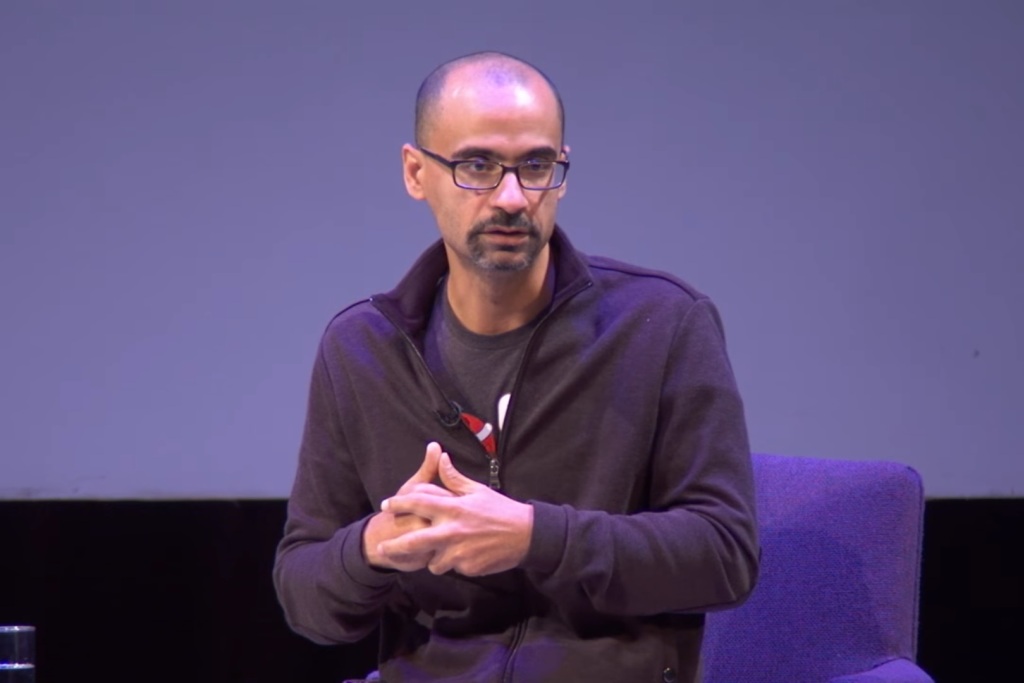Junot Diaz Has Withdrawn From The Sydney Writer’s Festival After Sexual Harassment Allegations
The Pulitzer prize-winning author was confronted during a Q&A in Sydney on Friday.

Pulitzer Prize-winning author Junot Diaz has pulled out of the remainder of the Sydney Writer’s Festival after being publicly accused of sexual harassment by writer Zinzi Clemmons.
Diaz, whose novel, The Brief Wondrous Life of Oscar Wao, won the Pultizer for Fiction in 2008, was participating in a Q&A in Sydney when he was confronted by Clemmons about an incident six years ago in which she alleges he cornered her and forcibly kissed her. She later reiterated the accusation on Twitter, writing “I refuse to be silent anymore”.
As a grad student, I invited Junot Diaz to speak to a workshop on issues of representation in literature. I was an unknown wide-eyed 26 yo, and he used it as an opportunity to corner and forcibly kiss me. I’m far from the only one he’s done this 2, I refuse to be silent anymore.
— zinziclemmons (@zinziclemmons) May 4, 2018
I told several people this story at the time, I have emails he sent me afterward (*barf*). This happened and I have receipts.
— zinziclemmons (@zinziclemmons) May 4, 2018
In the hours since, a number of other women have come forward and accused Diaz of misconduct. Carmen Maria Machado, a writer who is also in Sydney for the festival, tweeted that Diaz once “went off [at] me for twenty minutes” during a speaking appearance when she asked him a question about his protagonist’s “unhealthy, pathological relationship with women”.
Another writer, Monica Byrne, accused Diaz of “verbal sexual assault”, recounting an incident in which she says he “shouted the word ‘rape’ in my face” during a disagreement at a dinner following a literary event in 2014.
During his tour for THIS IS HOW YOU LOSE HER, Junot Díaz did a Q&A at the grad program I’d just graduated from. When I made the mistake of asking him a question about his protagonist’s unhealthy, pathological relationship with women, he went off for me for twenty minutes. https://t.co/7wuQOarBIJ
— Carmen Maria Machado (@carmenmmachado) May 4, 2018
I was 32 and my first novel hadn’t come out yet. I was invited to a dinner and sat next to him. I disagreed with him on a minor point. He shouted the word “rape” in my face to prove his. It was completely bizarre, disproportionate, and violent. https://t.co/WQr0hLW8Z5
— Monica Byrne (@monicabyrne13) May 4, 2018
The Sydney Writer’s Festival issued a statement on Saturday morning confirming that “following the allegations of inappropriate and aggressive behaviour towards Zinzi Clemmons and other young women, Mr Diaz has withdrawn from his remaining sessions at the Sydney Writer’s Festival”.
“Sydney Writer’s Festival is a platform for the sharing of powerful stories: urgent, necessary and sometimes difficult,” the statement added. “Such conversations have never been more timely.”
The allegations against Diaz come less than a month after he penned an essay for The New Yorker outlining his own experience of sexual assault at the hands of “a grownup that I trusted”.
Asked on Twitter whether she thought the essay was an attempt by Diaz to “pre-empt” the allegations against him, Clemmons replied “Yes. And so do many of my colleagues”.
In a statement provided to The New York Times by his literary agent, Diaz did not respond to the specific allegations against him, but said he took “responsibility for my past”.
“That is the reason I made the decision to tell the truth about my rape and its damaging aftermath,” the statement read. “This conversation is important and must continue. I am listening to and learning from women’s stories in this essential and overdue cultural movement. We must continue to teach all men about consent and boundaries.”